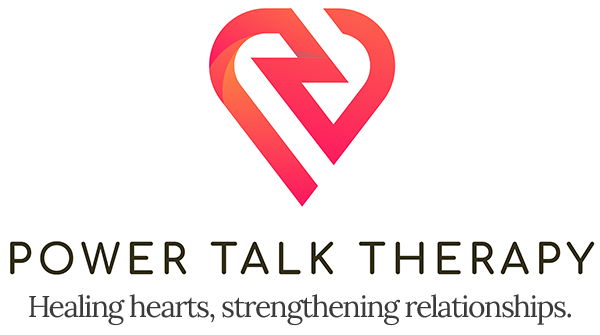Online Trauma Therapy
Online Trauma Counseling in California | Online Trauma Treatment in California
Are distressing memories lingering in your mind and body?
A harrowing event (or series of events) might have left you so shaken that you remain stuck in the aftermath.
Overwhelming emotions, thoughts, and physical sensations may constantly remind you of the incident(s), changing how you view yourself and others. You might panic and become hyperalert, avoiding anyone and anything that brings you back to those moments.
Or you may disconnect from yourself and the world around you, feeling numb and going through the motions as if you were having an out-of-body experience.
No matter what you’ve been through or how long you’ve been carrying it, you are NOT your trauma. You are capable of facing your truth, healing what hurts, and building yourself back up. And our trauma therapists can help you make that happen.
Restore and own your trauma story.
Power Talk Therapy supports adults with online trauma therapy and other psychological services across California.
Trauma might be a scary and heartbreaking page in your book, but it’s not the whole story. It doesn’t have to define you or limit your potential.
Let’s come together to relieve your pain and take the reins of your narrative.
Get in touch to start therapy today.
What is trauma?
Trauma is the reaction to a threatening or troubling experience that causes severe mental, emotional, and physical distress.
Common traumatic incidents include:
- Abuse
- Accident or injury (e.g., car crash, fracture)
- Childhood abandonment or neglect
- Criminal attack (e.g., assault, armed robbery)
- Discrimination or racism
- Loss of someone or something you care about
- Medical condition or procedure
- Natural disaster or emergency (e.g., wildfire, earthquake)
- Warfare or military service
- Witnessing someone else going through trauma
Complex trauma refers to your response to ongoing or recurring traumatic experiences (e.g., domestic violence, persistent childhood abuse) that may result in entangled psychological wounds.
Intergenerational trauma occurs when disturbing events travel from one generation to the next. It can start with an individual, family, community, or group and then extend to future descendants.
What is online therapy for trauma?
Online trauma therapy or trauma counseling consists of working with a mental health practitioner to explore and process the dimensions of your trauma via a confidential and accessible online service.
The goal is to support you to resolve current and past hurt without pressuring you to revisit or explain it in detail.
Do you need therapy for trauma?
Trauma is less about the specific incident(s) and more about what your mind, body, and spirit go through as they happen.
When you endure a traumatic episode, your nervous system might get overstimulated and disrupted, triggering your fight, flight, or freeze response. While some recover from the situation and move forward, others remain stuck, reliving it and suffering lasting and devastating effects.
The recurring signs of trauma are what we call post-traumatic stress symptoms and include:
- Abstaining from locations, people, or circumstances related to trauma
- Anger and frustration
- Difficulty recalling or talking about trauma
- Extreme worry and panic
- Feeling foggy, numb, and disconnected
- Flashbacks and obsessive thoughts about trauma
- Guilt or shame
- Hypervigilance
- Lack of focus and energy
- Low self-worth and hopelessness
- Mood swings and overwhelming emotions
- Sleep problems (e.g., insomnia, nightmares)
If you or your loved ones are grappling with post-traumatic stress symptoms, do not wait. Therapy can help you better understand your trauma and alleviate your wounds.
Do you have post-traumatic stress disorder (PTSD)?
While undergoing post-traumatic stress symptoms is debilitating, it doesn’t necessarily indicate you have post-traumatic stress disorder (PTSD).
To receive this clinical diagnosis, symptoms must impede your functioning for at least one month and align with specific criteria. If you believe you might be living with PTSD, let’s talk.
How can online therapy help with trauma?
Untangling your trauma story
Remembering, thinking, let alone speaking about your trauma might be very difficult. You may be unable to grasp or pinpoint the situation(s) and intricacies involved. Or perhaps you feel guilty and uncertain about what occurred.
Online therapy offers compassionate and gentle guidance to unravel the threads of your trauma so you can realize its source and impact. We won’t rush or push you to hold conversations you don’t want to have—we’ll rather open up space and direct your awareness with caution and kindness.
Healing your wounds
It’s challenging to tend to what you don’t know. As you become more enlightened and mindful of your trauma, you’ll begin to make sense of what you feel, why, and how it’s preventing you from living your life.
This will lay the groundwork to process the emotional pain you’ve been harboring and regulate your nervous system’s reaction. We’ll also identify effective coping mechanisms to reduce distress and find relief.
Recovering your safety
Traumatic episodes may strip you of your sense of safety, affecting your ability to trust yourself and others. You might feel in danger, even when you are no longer at risk.
Changing your relationship with your trauma allows you to feel safer in your mind and body, in environments previously deemed as “risky,” and in your interactions. This will increase your confidence, improve your relationships, and create greater satisfaction.
Online trauma therapy allows you to do all this from a soothing place of your choosing and on a day and time that serves your schedule.
Power Talk Therapy | Online trauma therapists in California
Power Talk Therapy offers online trauma therapy for adults throughout California, including people residing in San Francisco, Irvine, Newport Beach, Laguna Beach, Palos Verdes, Manhattan Beach, Beverly Hills, Santa Monica, Palo Alto, Atherton, Los Altos, Belvedere, and nearby areas.
Our trauma therapists and certified clinical trauma professionals (CCTP) speak English and Spanish and specialize in childhood trauma, grief, loss, PTSD, and the Veteran population. We also house Veterans and Veterans’ partners who understand the distinct hardship weathered in the military and the trauma that may come with it.
We integrate different modalities in trauma treatment, such as cognitive behavioral therapy (CBT), to see the link between your thoughts, emotions, and behaviors in the context of trauma, trauma-focused cognitive behavioral therapy (TF-CBT) to combine CBT strategies with family therapy principles, and eye movement desensitization and reprocessing (EMDR) to use your brain’s natural ability to reprocess unresolved memories.
While addressing your suffering might seem like the last thing you want to do, it’s the starting point of recovery. We know what lies ahead may not be easy, but you are not walking alone. We’ll provide an empathetic ear, a comforting hand, and a kind-hearted spirit.
Ready to mend?
If trauma has been casting a shadow over your path, you’ve found the right place.
Let’s begin your healing journey so you can feel lighter, safer, and ready to take on the world.
Call 949-229-3221 or contact us to book a free consultation.

